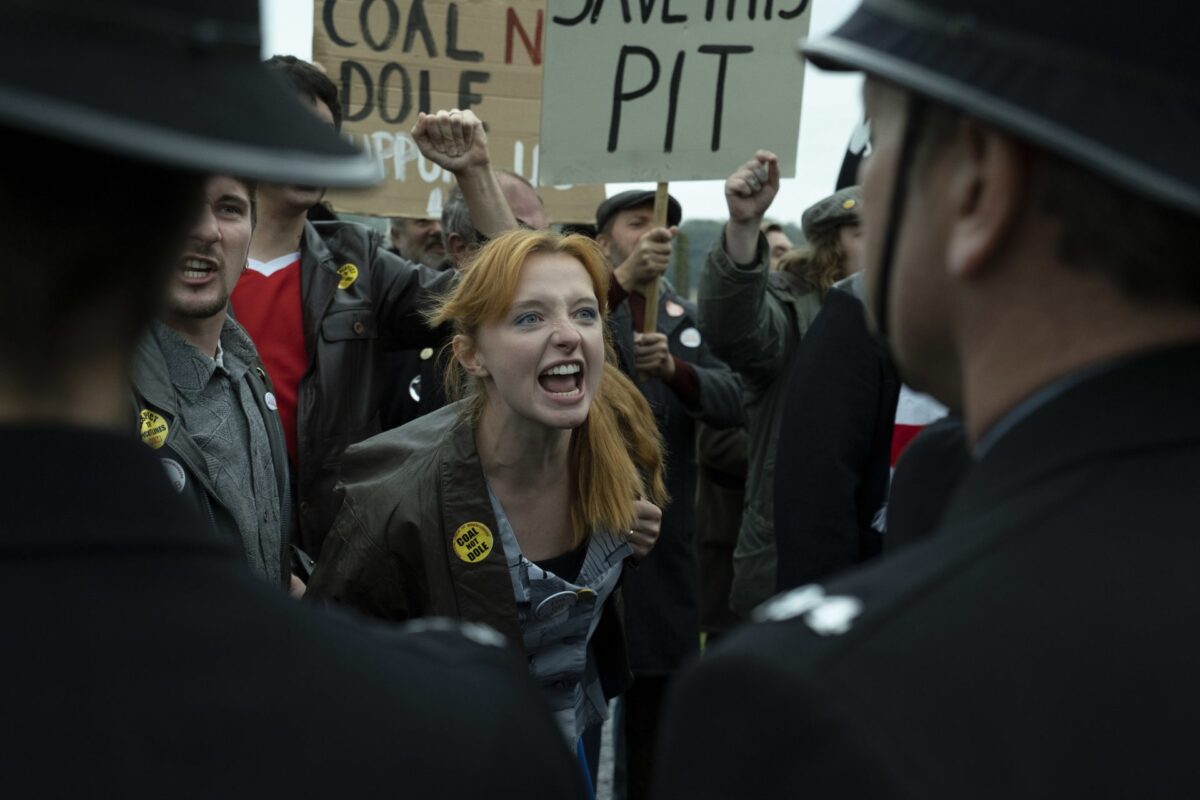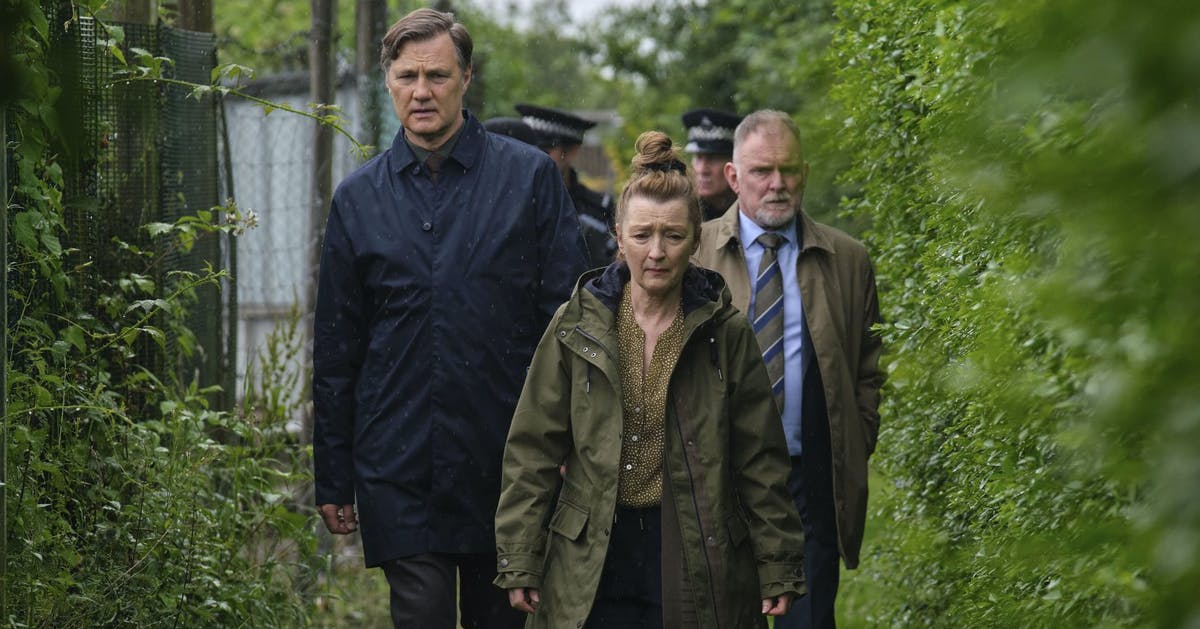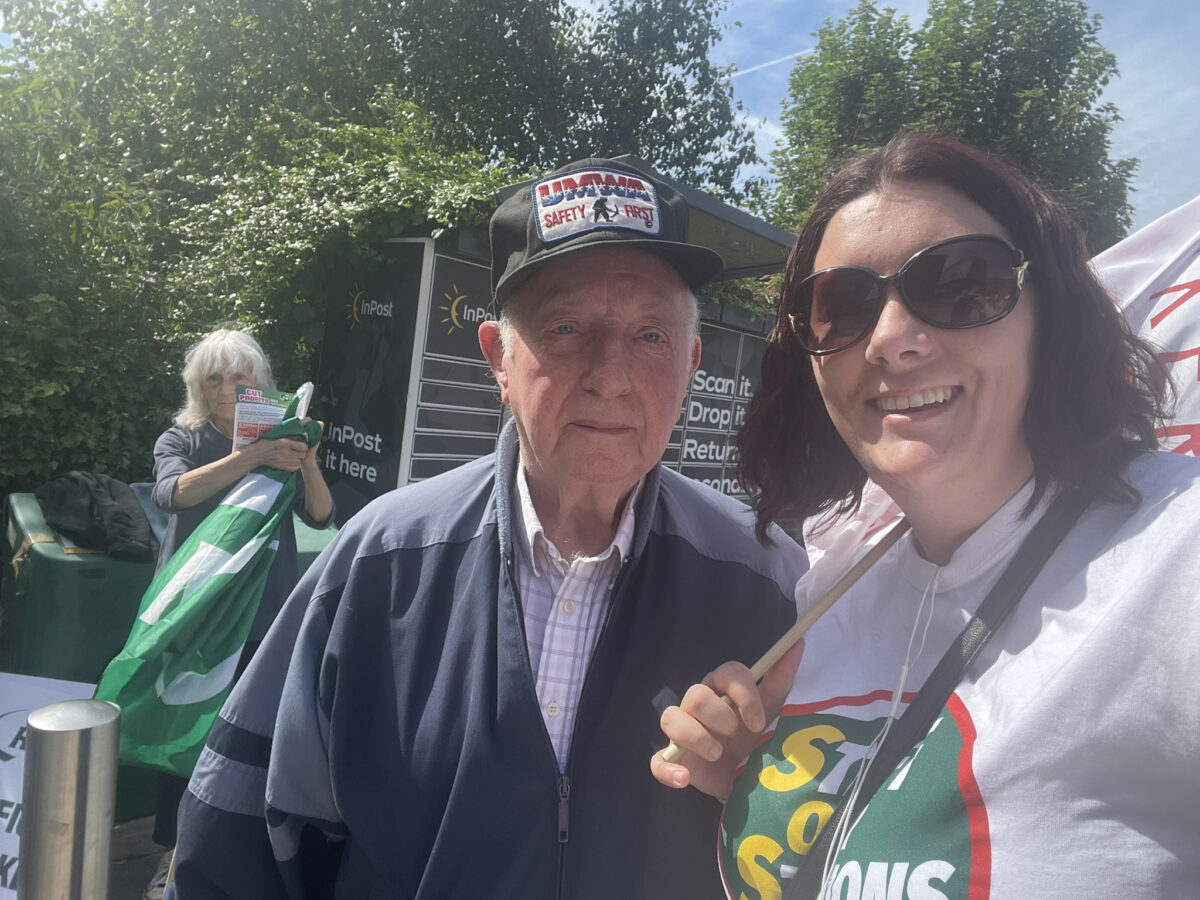May contain spoilers.
How many times were we told by family, friends and more moderate members of the left in the 1970s or 1980s that we were paranoid to talk about police spies or state conspiracy against the radical left and the workers’ movement? This critically acclaimed drama, loosely based on real events, is yet another argument proving we were more right than wrong about the role of the British state. Currently, there is an official government inquiry into undercover policing – there is even a website. Organisations like the Socialist Workers Party (ex International Socialists) had dozens of police spies active for years detailing the most obscure personal details of members. Tariq Ali, ex-leader of the International Marxist Group, accumulated a huge police dossier.
Indeed we need to continue to say loud and clear that the state will always act to defend the interests of the capitalist class, using all the means at its disposal. All the supposedly reassuring banalities of Keir Starmer’s sermons on ‘security’ fail to address this problem.
Sherwood Writer James Graham examines the way the state used ‘spycops’ to infiltrate the miners union and employed a military-style police operation to protect scabs breaking the strike. He shows how one ‘spycop’ even acted as an agent provocateur in order to whip up sentiment against the most militant strikers. What is brilliant is how he meshes this side of the story with a contemporary police thriller/procedural narrative about a murderer using bows and arrow and crossbows to attack or kill local people.

Some historical background is needed here. Thatcher came to power in 1979 with a clear strategy and project. The analysis of her leadership group was that British capitalism was not profitable enough because of the strength of the trade unions to defend workers’ interests. If you read Alan Thornett’s autobiography, Militant Years, of his time as a leading shop steward in Cowley car plant in the 1970s, you can see that she was not wrong about union organisation. Even if there were (and are) other reasons for British capital’s relative lack of competitiveness. Thatcher’s obsession to roll back union power was particularly driven by what she saw as Tory premier, Ted Heath’s capitulation to the miners in 1972.
What happened with government tactics and policing during 1984 was not some spontaneous day-by-day reaction but the carrying out of the strategy laid down in the notorious Ridley report – a plan drawn up by a right wing MP to smash the unions in the nationalised industries. Anti-union laws to prevent effective picketing were passed in 1980. They were designed to prevent the successful picketing that closed the Saltley Gates coal depot in 1972. Coal stocks were carefully built up to avoid the 3 day week of Heath’s time and most important a battle plan was drawn up to use huge police resources to break the strike. As the drama graphically shows thousands of police from the Met and elsewhere were bussed up to the coalfields. In what has been dubbed the Battle of Orgreave the police used horses and other military style tactics to keep the British Steel coking plant open.
Nevertheless, a key factor in the defeat of the strike was the fact that the large Nottinghamshire coalfield, in its overwhelming majority, refused to join the strike. The government did everything it could to exacerbate the divisions. Promises were made, which of course were later broken, to keep the pits there open. Behind the scenes work by Tory right wing supporters were employed to help keep the Nottingham leadership opposed to the national leadership of Arthur Scargill. Much was made of the national leadership’s refusal to call a national strike ballot.
For those strikers in Nottingham, it was very difficult. The drama shows the inevitable bitterness and divisions between strikers and scabs. Families were split down the middle. In the final episode there is a Ken Loach style meeting in the community centre between strikers and those who worked. The Lesley Manville character points out how ‘them’ (the bosses/government) always try to divide us. A striker makes the obvious point that keeping working did not save the pit. Someone who worked during the dispute puts an ecological gloss on the decision to work on – coal was dying and they needed to cooperate to keep things going for a while before the change. Whether those who worked through the strike really had such positions is debatable. It is more accurate to say they were duped by the argument that the coalfield would be protected. However, a drama has to try and get to grips with how people who did not strike felt about their actions. Sherwood is not some crude agitprop where real life is portrayed simplistically.
There is a wonderful scene where the two sisters who were on opposite sides in the strike and who have barely spoken for decades begin to re-establish some relationship as they talk very tentatively. They do not see each other, there is a large wall between them which dominates the shot. At the end of that final meeting in episode 6, what comes out is that the bitterness and division were not down to individual selfishness or goodness but caused by social and state forces outside their control. You ask yourself what could or should have been done in the years since the strike to move on, to try and overcome the split with a progressive or socialist approach.
The secrets and lies of the state are mirrored by the secrets and lies that frame the personal relationships of several characters. In this story, those secrets and lies are a consequence of the way the state has operated. So a promotion is gained by informing on a parent because that helped the state fill out its narrative on violent striking miners. A ‘spycop’ hides their role in the key violent accident for a lifetime. We are kept guessing to the end about whether this crucial act will be revealed publicly or not.
Graham very skilfully keeps the viewer guessing right to the final episodes but the twists and turns do not obscure the political messaging that runs through the drama. Newsreel footage is used at the end to emphasise that this is not just another police procedural but is addressing much bigger issues. There is a poignant clip of one of the strikers working today in an Amazon-style warehouse. The drama does what Ken Loach does so well in his films but is rarely seen on mainstream TV – it gives an authentic voice to working-class people. The police characters and the procedural aspects are much less important than what is going on in the lives of the community. The lead character, Detective inspector Ian St Clair, played by David Morrissey is a far cry from the ‘smart’ investigators of a series like Line of Duty. He is nearly always behind the curve of events dutifully recording details in his big notebook. Morrissey does a great job in getting across his ordinariness, mediocrity and cowardice but also his humanity and concern for what remains of his community.

This project obviously excited a lot of the best actors and actresses around as we see Morrissey, Lesley Manville, Adeel Akhtar, Robert Glenister, Nadine Marshall, Claire Rushbrook and Lorraine Ashbourne among others. There is a nice touch where Glenister’s real son plays his younger self so the resemblance is very accurate! Women actresses are centre stage and there is a whole subplot featuring two Asian heritage actors. Some critics and people on social media have questioned this part of the story but remember the importance of the MacGuffin used so well by Hitchcock to disrupt what we think is happening and the tensions in this family are interesting.
Landscape and locality are well used too. You see the insularity and relative isolation of these pit villages in their beautiful rural settings. They were not particularly large communities so the bitterness and intensity of relationships can be more easily understood. Then there are the symbolic references to Sherwood Forest and Robin Hood. The murderous archer is a sort of anti-Robin Hood. Forests – as far back as Shakespeare – have always played a role of darkness, mystery, escape and threat. This drama continues the tradition.
Fortunately, this show is still available on BBC Iplayer, one reason why this review has tried hard not to give any spoilers. It is a great way to start a conversation about how we need to talk about the state and how it works.
People are kept compliant with the system through the society of the consumerist spectacle and well-oiled ideologies like nationalism and fear of difference. They play a vital role in securing consent. But never forget the violence of the market, the fact that it controls your work options, and the vast resources of the repressive state apparatus. The police baton is still the first and last line of defence for our class enemy.

The appearance of Arthur Scargill on an railworkers’ picket line last week is a reminder that this reality has not fundamentally changed. Just as Kinnock, the Labour leader in 1984, scabbed on the miners, Keir Starmer is refusing to support the railworkers. Though not even Kinnock sanctioned shadow ministers from personally supporting miners’ picket lines.
Art Book Review Books Campism Capitalism China Climate Emergency Conservative Government Conservative Party COVID-19 Creeping Fascism Economics EcoSocialism Elections Europe Far-Right Fascism Film Film Review Fourth International France Gaza History Imperialism Iran Israel Italy Keir Starmer Labour Party Long Read Marxism Marxist Theory Migrants Palestine pandemic Police Protest Russia Solidarity Statement Trade Unionism Trans*Mission Ukraine United States of America War

